Related Research Articles

Shelby County is a county located in the U.S. state of Kentucky. As of the 2020 census, the population was 48,065. Its county seat is Shelbyville. The county was established in 1792 and named for Isaac Shelby, the first Governor of Kentucky. Shelby County is part of the Louisville/Jefferson County, KY–IN Metropolitan Statistical Area. Shelby County's motto is "Good Land, Good Living, Good People".

Lewis County is a county located in the U.S. state of Kentucky. As of the 2020 census, the population was 13,080. Its county seat is Vanceburg.

Leslie County is located in the U.S. state of Kentucky. Its county seat and largest city is Hyden. As of the 2020 census, the population was 10,513. It was formed in 1878 from portions of Clay, Harlan, and Perry counties, and named for Preston Leslie, governor of Kentucky from 1871 to 1875.

Carter County is a county located in the U.S. state of Kentucky. As of the 2020 census, the population was 26,627. Its county seat is Grayson. Carter County is in the Huntington-Ashland, WV-KY-OH Metropolitan Statistical Area. It is home to Carter Caves State Resort Park.

Olive Hill is a home rule-class city along Tygarts Creek in Carter County, Kentucky, in the United States. The population was 1,599 during the year 2010 U.S. Census.

Hyden is a home rule-class city in and the county seat of Leslie County, Kentucky, United States. The population was 365 at the 2010 census. It is located at the junction of U.S. Route 421 and Kentucky Route 80, along the Middle Fork of the Kentucky River.
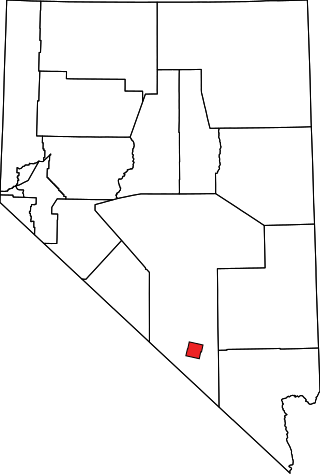
Bullfrog County was an uninhabited county in the U.S. state of Nevada created by the Nevada Legislature in 1987. It comprised a 144-square-mile (370 km2) area around Yucca Mountain enclosed by Nye County, from which it was created. Its county seat was located in the state capital of Carson City 270 miles (430 km) away, and its officers were appointed by the governor rather than elected.
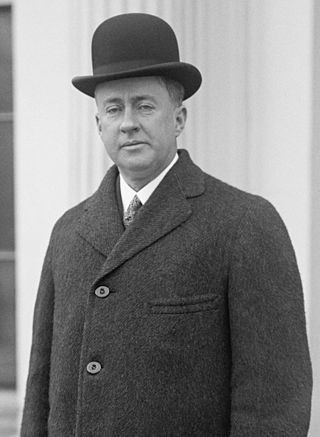
John Crepps Wickliffe Beckham was an American attorney serving as the 35th Governor of Kentucky and a United States Senator from Kentucky. He was the state's first popularly-elected senator after the passage of the Seventeenth Amendment.

James Bennett McCreary was an American lawyer and politician from Kentucky. He represented the state in both houses of the U.S. Congress and served as its 27th and 37th governor. Shortly after graduating from law school, he was commissioned as the only major in the 11th Kentucky Cavalry, serving under Confederate Brigadier General John Hunt Morgan during the American Civil War. He returned to his legal practice after the war. In 1869, he was elected to the Kentucky House of Representatives where he served until 1875; he was twice chosen Speaker of the House. At their 1875 nominating convention, state Democrats chose McCreary as their nominee for governor, and he won an easy victory over Republican John Marshall Harlan. With the state still feeling the effects of the Panic of 1873, most of McCreary's actions as governor were aimed at easing the plight of the state's poor farmers.
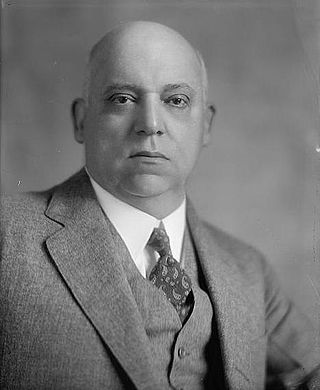
Augustus Owsley Stanley I was an American politician from Kentucky. A member of the Democratic Party, he served as the 38th governor of Kentucky and also represented the state in both the U.S. House of Representatives and the U.S. Senate. From 1903 to 1915, Stanley represented Kentucky's 2nd congressional district in the House of Representatives, where he gained a reputation as a progressive reformer. Beginning in 1904, he called for an antitrust investigation of the American Tobacco Company, claiming they were a monopsony that drove down prices for the tobacco farmers of his district. As a result of his investigation, the Supreme Court of the United States ordered the breakup of the American Tobacco Company in 1911. Stanley also chaired a committee that conducted an antitrust investigation of U.S. Steel, which brought him national acclaim. Many of his ideas were incorporated into the Clayton Antitrust Act.

William Sylvester Taylor was the 33rd Governor of Kentucky. He was initially declared the winner of the disputed gubernatorial election of 1899, but the Kentucky General Assembly, dominated by the Democrats, reversed the election results, giving the victory to his Democratic opponent, William Goebel. Thus, Taylor served only 50 days as governor.
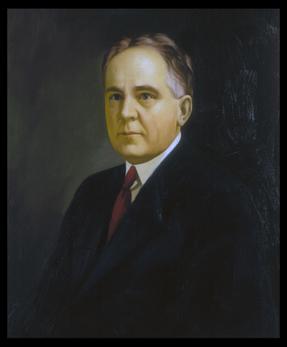
Flemon Davis "Flem" Sampson was the 42nd Governor of Kentucky, serving from 1927 to 1931. He graduated from Valparaiso University in 1894, and opened a law practice in Barbourville, Kentucky. He formed a political alliance with future Representatives Caleb Powers and John Robsion, both prominent Republicans in the eastern part of the state. By 1916, he was serving on the Kentucky Court of Appeals and had previously served as a county judge and circuit court judge. In 1923, he was elevated to chief justice of the Court of Appeals. He served until 1927, when he became the Republican gubernatorial nominee.

Augustus Everett Willson was an American politician and the 36th Governor of Kentucky. Orphaned at the age of twelve, Willson went to live with relatives in New England. This move exposed him to such authors as Ralph Waldo Emerson, Henry Wadsworth Longfellow, Oliver Wendell Holmes, and James Russell Lowell, who were associates of his older brother, poet Forceythe Willson. He was also afforded the opportunity to attend Harvard University, where he earned an A.B. in 1869 and an A.M. in 1872. After graduation, he secured a position at the law firm of future Supreme Court justice John Marshall Harlan. Willson and Harlan became lifelong friends, and Willson's association with Harlan deepened his support of the Republican Party.

James Edwards Cantrill was elected the 22nd Lieutenant Governor of Kentucky serving from 1879 to 1883 under Governor Luke P. Blackburn. He also served as a circuit court judge starting in 1892, and in 1898 was elected to the Court of Appeals bench.

William Justus Goebel was an American Democratic politician who served as the 34th governor of Kentucky for four days, having been sworn in on his deathbed a day after being shot by an assassin. Goebel remains the only state governor in the United States to ever be assassinated while in office.

The 1899 Kentucky gubernatorial election was held on November 7, 1899, to choose the 33rd governor of Kentucky. The incumbent, Republican William O'Connell Bradley, was term-limited and unable to seek re-election.
Taylor v. Beckham, 178 U.S. 548 (1900), was a case heard before the Supreme Court of the United States on April 30 and May 1, 1900, to decide the outcome of the disputed Kentucky gubernatorial election of 1899. The litigants were Republican gubernatorial candidate William S. Taylor and Democratic lieutenant gubernatorial candidate J. C. W. Beckham. In the November 7, 1899, election, Taylor received 193,714 votes to Democrat William Goebel's 191,331. This result was certified by a 2–1 decision of the state's Board of Elections. Goebel challenged the election results on the basis of alleged voting irregularities, and the Democrat-controlled Kentucky General Assembly formed a committee to investigate Goebel's claims. Goebel was shot on January 30, 1900, one day before the General Assembly approved the committee's report declaring enough Taylor votes invalid to swing the election to Goebel. As he lay dying of his wounds, Goebel was sworn into office on January 31, 1900. He died on February 3, 1900, and Beckham ascended to the governorship.

William O'Connell Bradley was a politician from the U.S. state of Kentucky. He served as the 32nd Governor of Kentucky and was later elected by the state legislature as a U.S. senator from that state. The first Republican to serve as governor of Kentucky, Bradley became known as the father of the Republican Party in Kentucky.
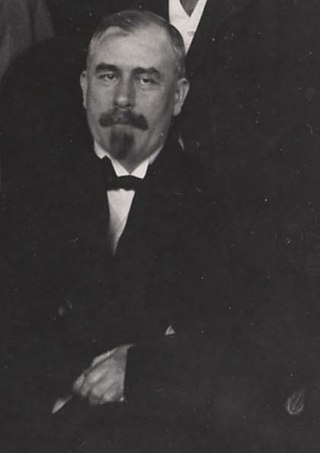
Edward Clay O'Rear was an American politician who served on the Kentucky Court of Appeals and was a Republican candidate for the United States House of Representatives in 1888 and for Governor of Kentucky in 1911. His father died when O'Rear was very young, and he began work as a printer's devil to help support his mother and fourteen siblings. Eventually, he became editor of the Mountain Scorcher newspaper and read law under its publisher. He gained admission to the bar in 1882.
References
- ↑ Kleber, John (1992). The Kentucky encyclopedia. Lexington, KY: University Press of Kentucky. pp. 65–66.